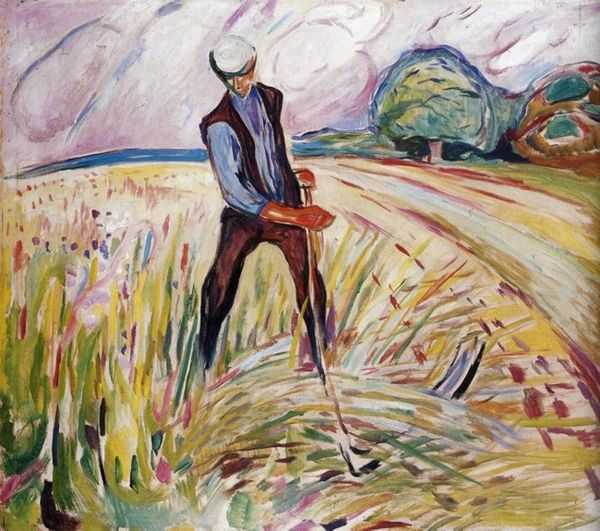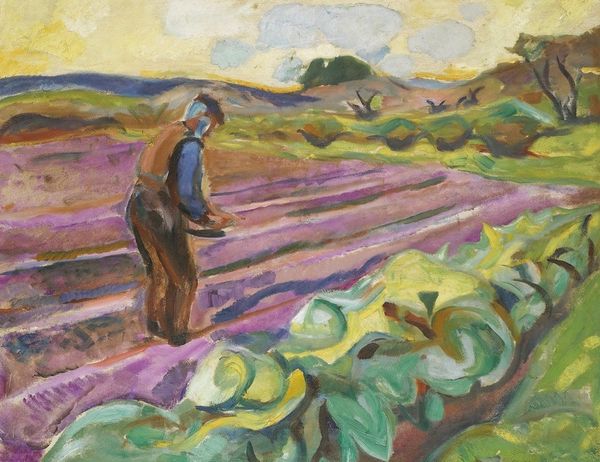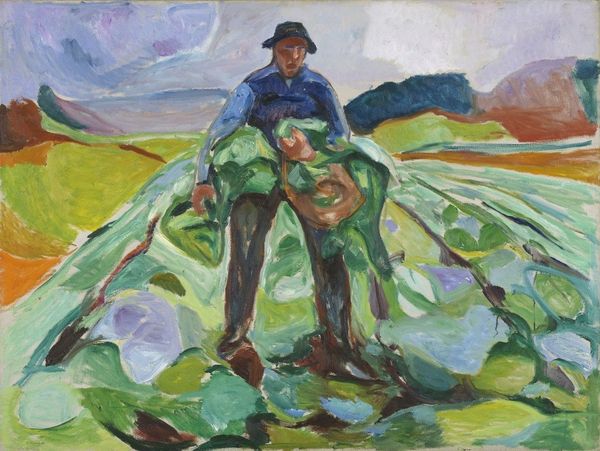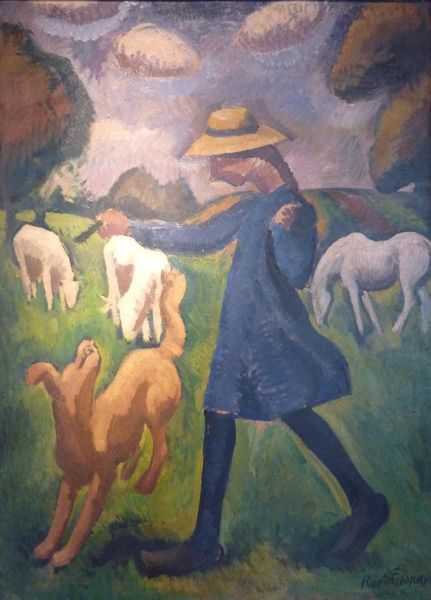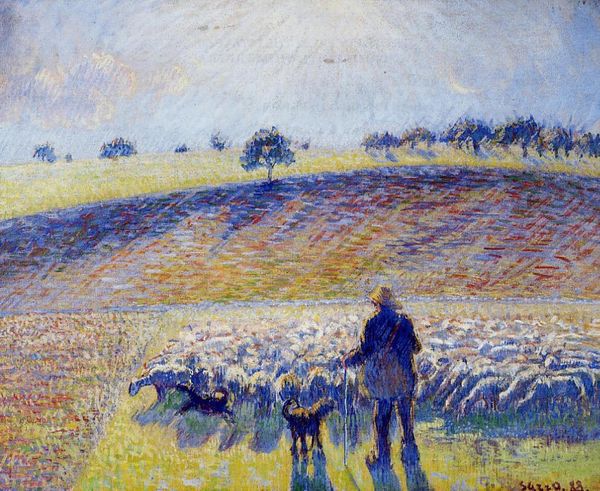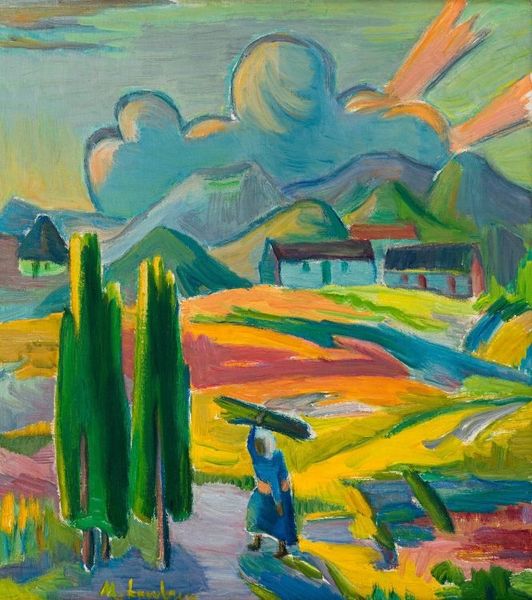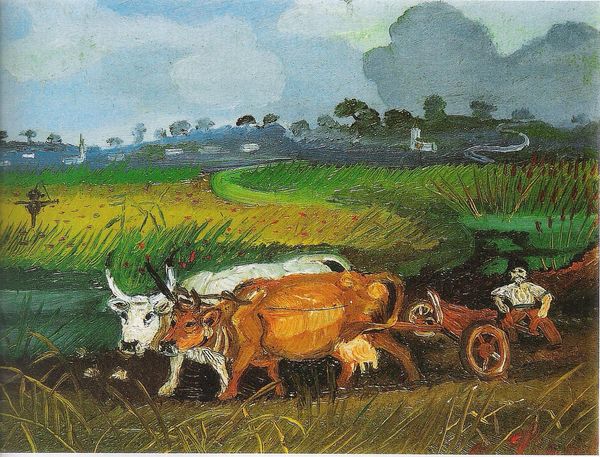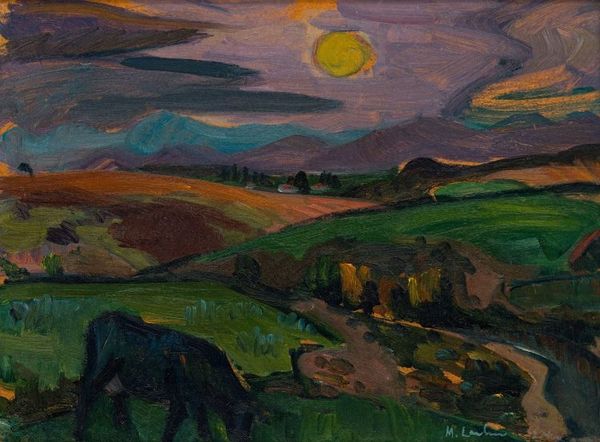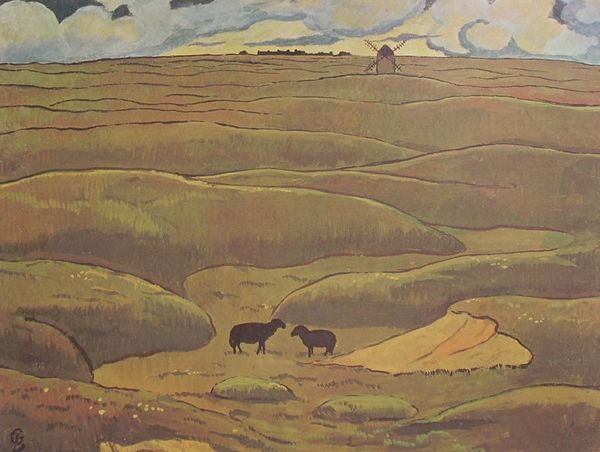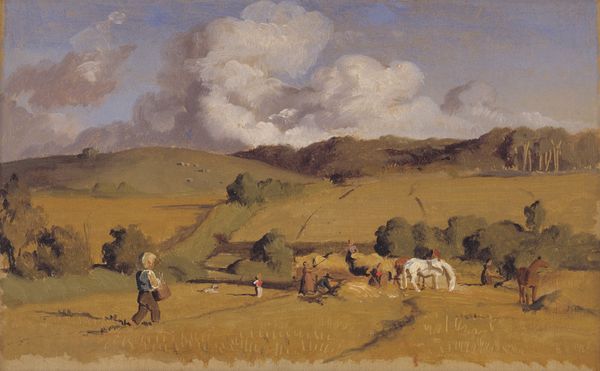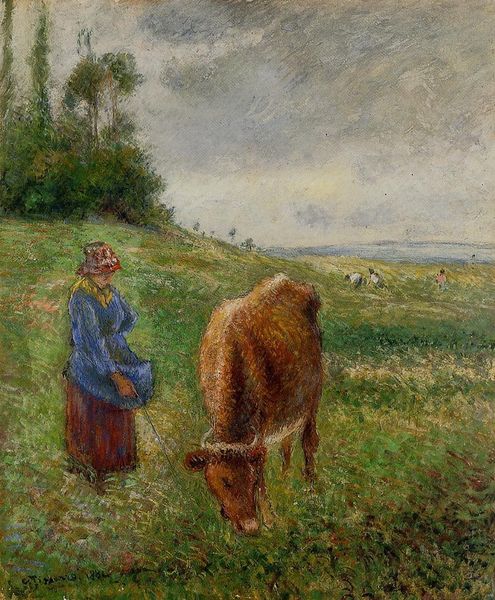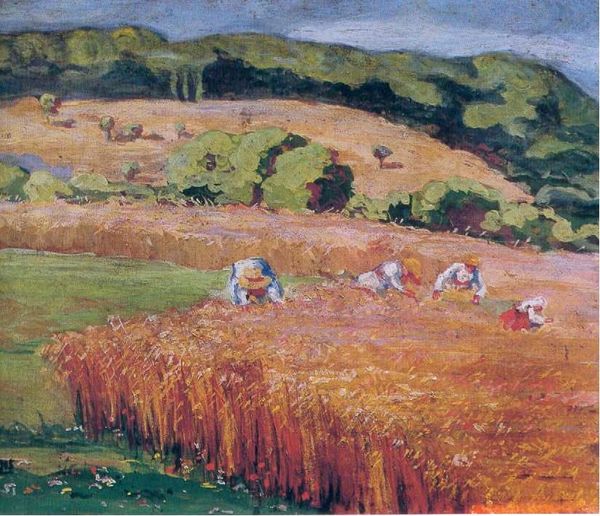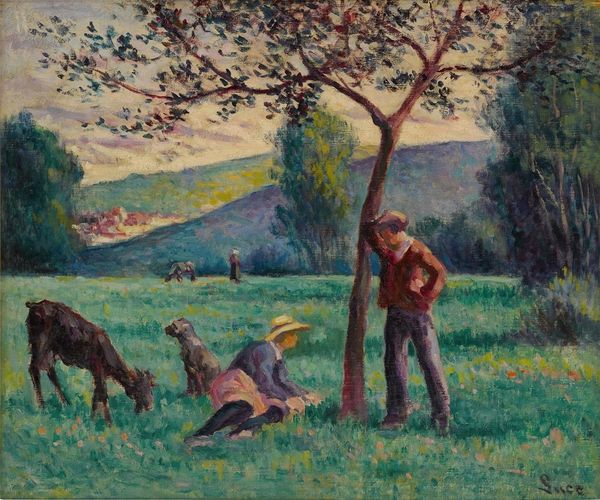
painting, oil-paint
#
portrait
#
abstract expressionism
#
fauvism
#
fauvism
#
painting
#
oil-paint
#
landscape
#
figuration
#
oil painting
#
expressionism
#
naïve-art
#
naive art
Copyright: Maggie Laubser,Fair Use
Curator: This painting before us, titled "Shepherd Seated with His Flock", is by the South African artist Maggie Laubser. Editor: My first thought? A riot of colour, a slightly off-kilter pastoral scene, that hums with a naive kind of energy. I wonder about the red trousers! Curator: Laubser’s use of bold colours and simplified forms align this piece with the Expressionist and Fauvist movements. There's a wonderful directness. I find it evokes a world seen anew. Editor: Absolutely, there’s an intentionality to the materials at play. Looking at the texture, one sees the physical labor involved in moving the oil paint across the canvas, shaping it and leaving those strokes bare. What can you tell us about its setting? Curator: One might presume this is South African landscape – raw, vibrant, untamed. But Laubser studied in Europe, so this landscape could be a memory of somewhere else – a nostalgic rendering. Those vibrant, clashing colors and simple, almost child-like forms create an intense emotional landscape, right? Editor: I think there's something deeply evocative of peasant labor as well. There’s a groundedness—both physically, in the earth tones and the massing of shapes—and socially, in the subject’s labor. This connection with the land feels intrinsic to the image. What statement do you think that Laubser tried to convey with such an atypical composition? Curator: To me, Laubser explores not the actual work itself, but the internal space of the shepherd, the dream of simplicity and connection that's disrupted and elevated. You know, something deeply felt, rather than simply seen. Editor: I appreciate how you focus on affect. But what’s interesting to me is the tension. A painting like this blurs the line between elevated subject matter and simple craft, between consumption and material awareness. That makes Laubser especially radical. Curator: True, that's quite a useful counterpoint. I have no doubt that Laubser’s work would encourage me to look again. Editor: Precisely! We began thinking about its means of production, too. Both such worthwhile lines of inquiry.
Comments
No comments
Be the first to comment and join the conversation on the ultimate creative platform.
